Agronomist wants to ensure fair means fair
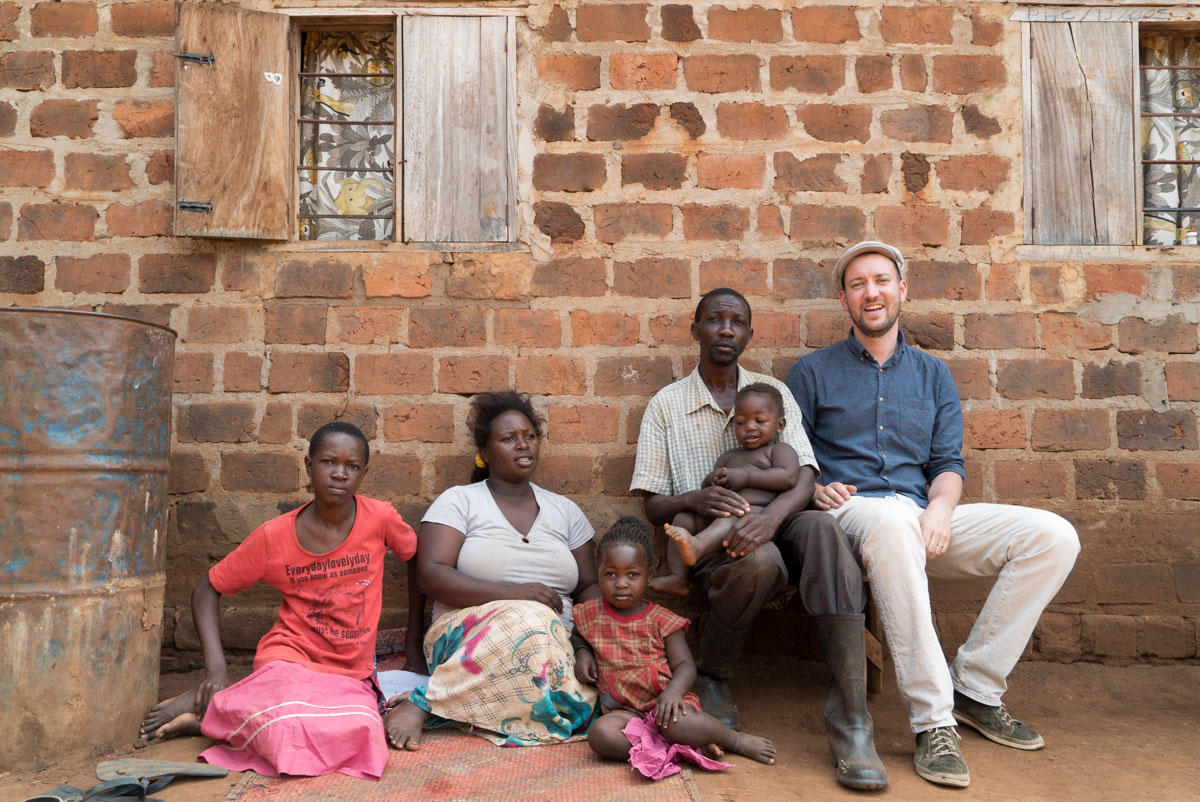
A Swiss start-up has launched an experiment in Uganda to give cocoa farmers a bigger piece of the chocolate market by paying a price above that of traditional ‘fair trade’ schemes.
The Jinja Road is constantly choked with traffic jams. But the small town of Kasawo is just a short hop away from this main traffic axis between the Ugandan capital of Kampala and the industrial city of Jinja. It is here that the Swiss start-up “Schöki” plans to produce fair trade cocoa – properly fair.
Smallholding farmers are dotted around Kasawo, growing enough crop mainly for their own needs. Through a labyrinth of arable and scrubland the four-wheel drive vehicle of Florian Studer, project manager of Schöki, wends its way past small banana, mango and avocado plantations, as well as cassava and coffee, to meet up with farmer Beka Ara Kisekka.
Studer and the 41-year-old Beka are business partners. Beka’s three hectares, with 46 trees per hectare, yields 500 kilos of cocoa beans annually generating an income of CHF1,800 ($1,790). On the world markets, one kilo of cocoa beans sells for less than two francs.
The Schöki project is in its pilot phase. There are other Swiss-backed initiatives around the world – such as Choba Choba that empowers small farmers in Peru – and Schöki could be part of this revolution.
The start-up is paying four francs per kilo of cocoa beans, which is double the Fairtrade label price and nearly three times than that paid outside the label system.
Premium not enough
The start-up is paying four francs per kilo of cocoa beans, which is double the Fairtrade label price and nearly three times than that paid outside the label system. Schöki calculates its payments without reference to the volatile global markets that trap many small-scale farmers in poverty, according to Studer.
“Fairtrade gives consumers the impression that farmers are doing really well,” says Studer. But this is not actually the case.
As a friend films, Studer gives vent about the injustice of the value chain, and how easy it would be to fix. Studer is shooting a video to campaign for more starting capital to go with the CHF30,000 raised through crowdfunding.
The 30-year-old agronomist from Lucerne is project manager at Horw-based Bioburn, which makes fuel pellets from waste biomass. He first came to Uganda where he made contact with Beka when evaluating the use of cocoa bean shells for pellets.
Studer is convinced that consumers would be prepared to pay CHF3.50 – instead of the usual CHF2 – for 100 grams of chocolate if they knew their extra cash would improve conditions for small farmers. The minimum price of Fairtrade chocolate is CHF2.20 per kilo of cocoa. But Studer thinks this is not a large enough improvement on regular prices. Prices are only fair when they provide farmers with enough income not only to live off, but also to develop their businesses.
Family to support
Beka is the father of ten children and a sixth of his income is spent on school fees. A poor yield has a negative impact on his family.
Small farmers in Africa produce the lion’s share of the world’s supply of cocoa. The global market is dominated by five large corporations, including Switzerland’s Barry Callebaut and the Geneva-based trader Cargill. Their price policy limits the scope and impact of the fair trade system.
“Fairtrade gives consumers the impression that farmers are doing really well,” says Studer. But this is not actually the case, he adds. Studer also took aim at retailers who exert pressure on the value chain by controlling demand.
Swiss retail group Coop, which stocks Fairtrade products, defends the label. “Many small-scale farmers benefit,” said Raphael Schilling from Coop’s sustainability department. “Fairtrade defines a minimum price that ensures a premium price per ton of cocoa and protects farmers from price erosion.
Future hope
This might be true today, but what does the future hold? Climate change poses major challenges for agriculture with rainfall declining in the tropical belt. At the same time, global demand for cocoa products is increasing. To meet the problem, the industry is investing in better cultivation and processing methods.
But sustainability could also provide part of the solution, according to Studer. Looking after farmers could benefit the whole chocolate industry, he argues.
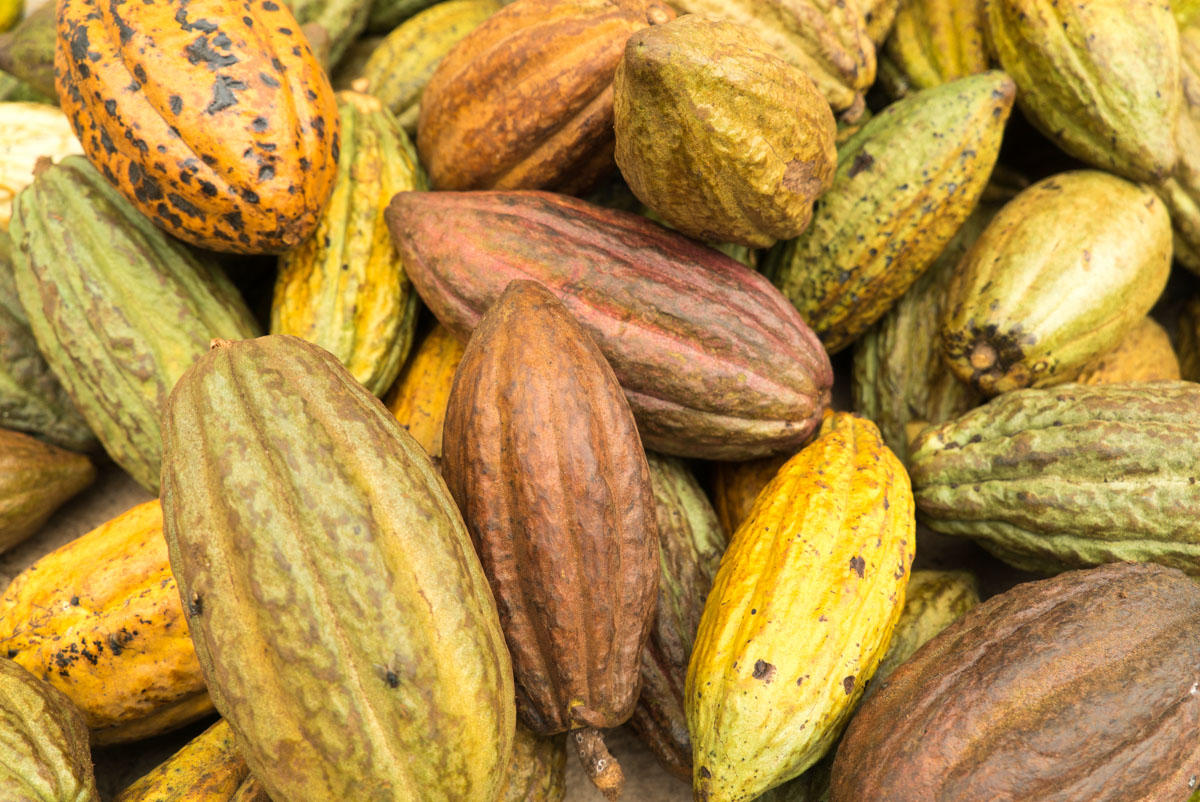
The Swiss chocolate market appears ripe for change. An increasing number of consumers want to trace exactly where their delicacies come from to make sure they are socially and ecologically compatible. Niche projects like Schöki can cash in with the help of a good story to capture public attention.
Studer unveils a colourfully painted container, bearing the slogan: “Good Chocolate, Happy People”. Inside the container is a red-lacquered press from Bioburn that can be used to convert cocoa shells into fuel pellets.
The first ton of Schöki arrives on schedule at chocolate maker Max Felchlin, a Schwyz-based company committed to sustainability. Christian Aschwanden, Felchlin’s managing director, says the chocolate industry has only just made a start with its fair trade efforts. The company has been working directly with farmers for 15 years and pays well above market prices.
“Schöki matches our philosophy,” he says. “Fair prices are rewarded by the best quality and reliability of deliveries.”
Translated from German by Matt Allen, swissinfo.ch

In compliance with the JTI standards
More: SWI swissinfo.ch certified by the Journalism Trust Initiative








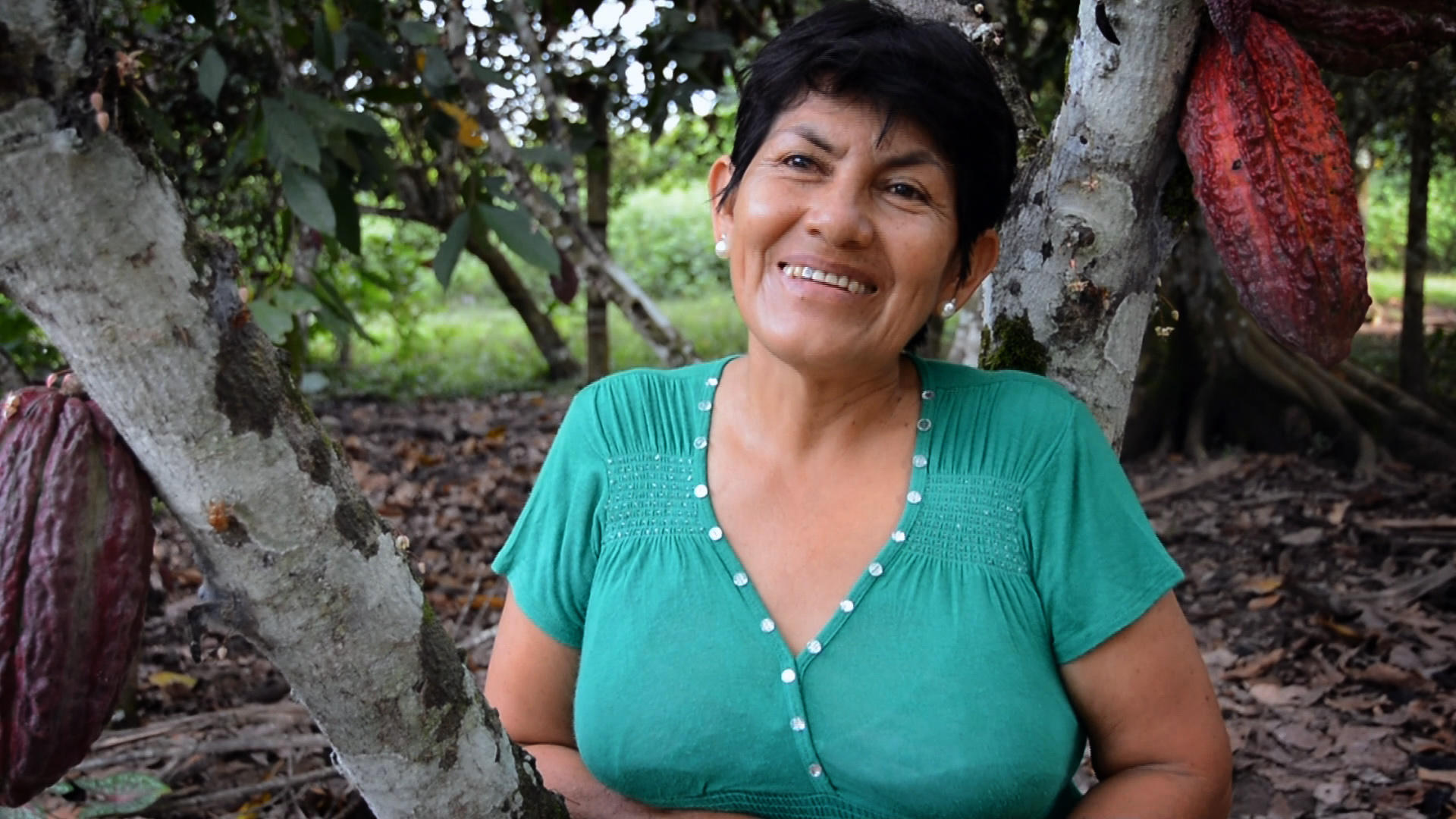
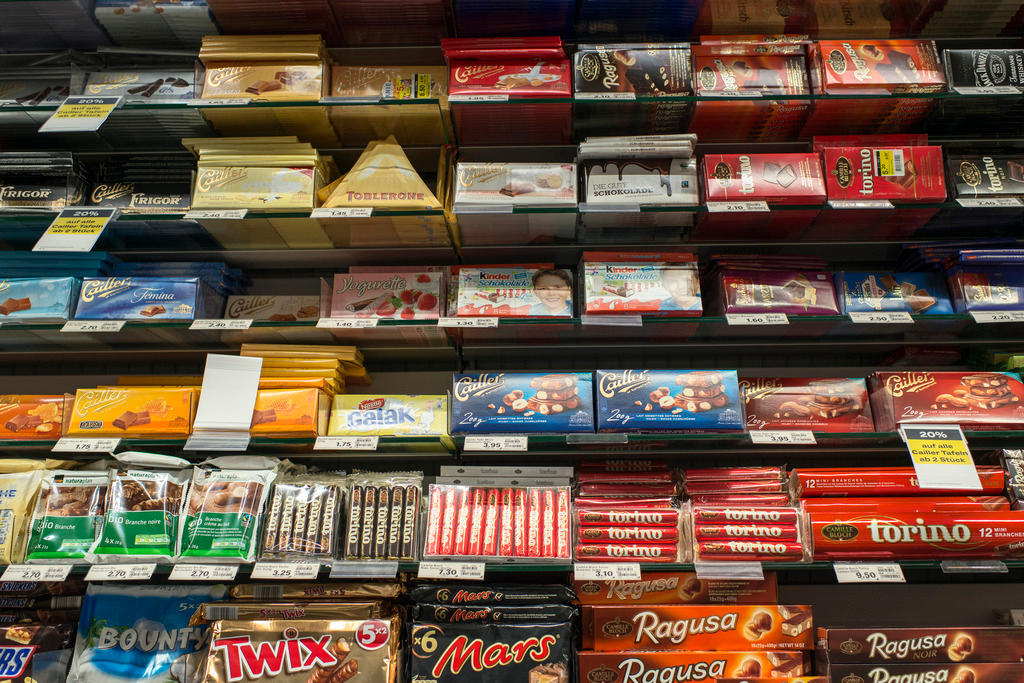

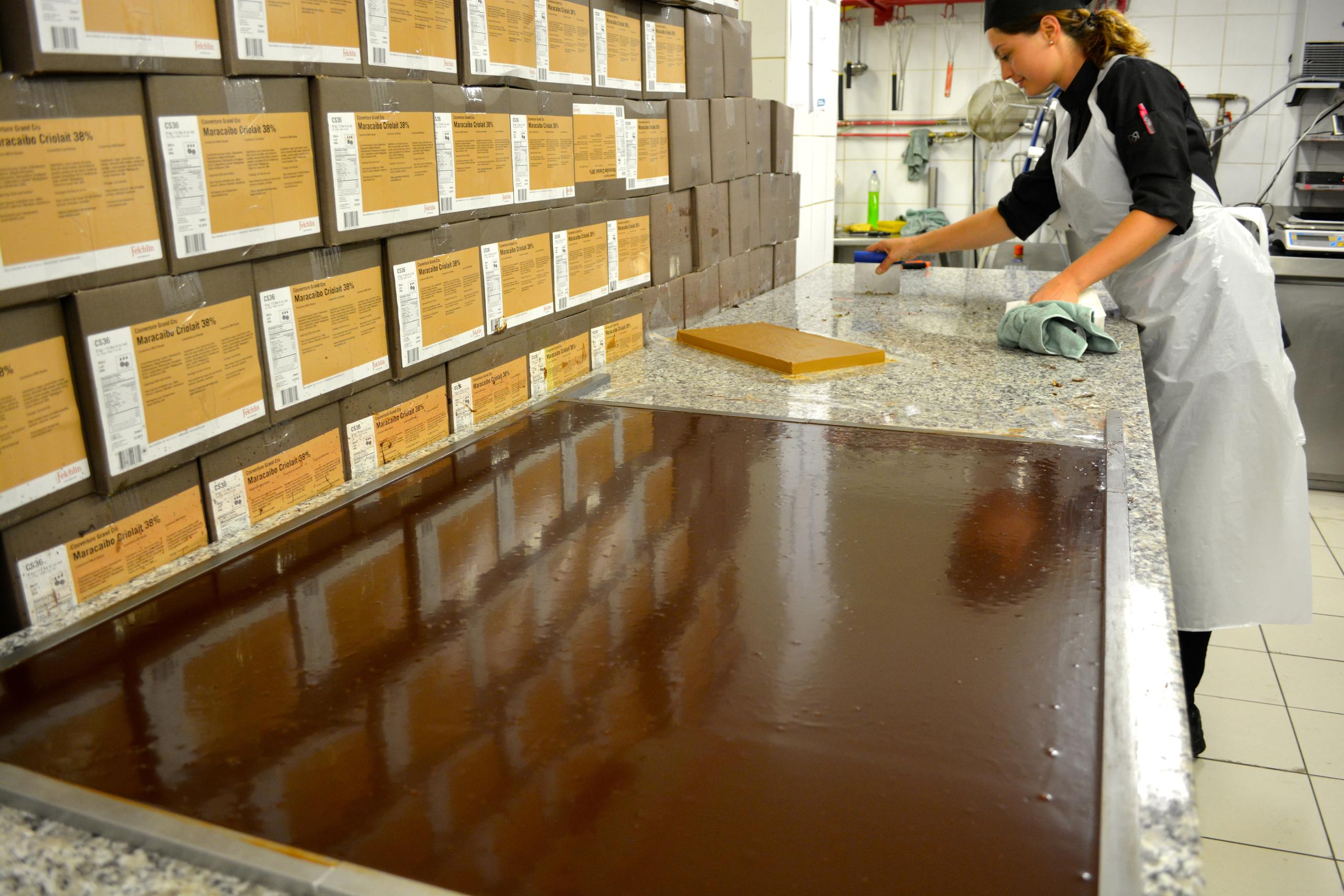



You can find an overview of ongoing debates with our journalists here . Please join us!
If you want to start a conversation about a topic raised in this article or want to report factual errors, email us at english@swissinfo.ch.